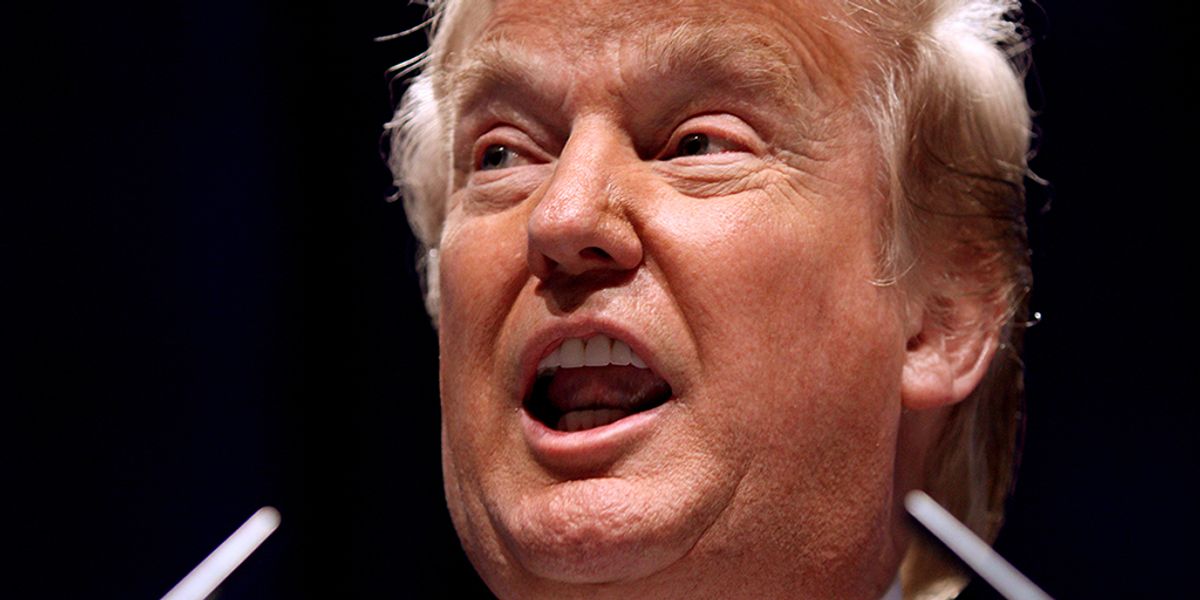On 16 February 2017, stories appeared on various dubious web sites that exaggerated the nature of a leaked draft of an executive order. According to the story, the draft was actually a fully-fledged order that had already been signed into effect by President Donald Trump, barring illegal immigrants from collecting public benefits:
Former president Barack Obama allowed illegals in America to apply and get on welfare. President Trump doesn’t approve this. You’d all agree that welfare is a privilege. It’s bad how some believe it’s the right that belongs to everyone who comes to this country. Illegals aren’t that fortunate. They will soon learn what’s like to live in a country ruled by Donald Trump. Every illegal who tries to collect a welfare check will feel justice on their back.
President Trump signed an executive order according to which any illegal who lives on welfare will be sent home. And that’s not all. America will no longer accept people who come here to live on our expense. These people will no longer be able to enter the country.
Not only has President Trump not signed any such order, undocumented immigrants are already ineligible for public benefits under the terms of the Personal Responsibility and Work Opportunity Reconciliation Act of 1996. According to the Washington Post, the draft order, titled "Executive Order on Protecting Taxpayer Resources by Ensuring Our Immigration Laws Promote Accountability and Responsibility," actually stated:
Our country’s immigration laws are designed to protect American taxpayers and promote immigrant self-sufficiency. Yet households headed by aliens are much more likely than those headed by citizens to use Federal means-tested public benefits.
Additionally, the draft said that the government would try to "deny admission to any alien who is likely to become a public charge" and explore the possibility of deporting immigrants who receive, as the Post reported, "a certain amount of public assistance, including Food Stamps, Temporary Assistance for Needy Families and Medicaid."
Such a clause would ignore the fact that "food stamps" (formally known as the Supplemental Nutrition Assistance Program) cannot legally be claimed by undocumented immigrants. The same holds true for both the TANF program. For its part, Medicaid specifies that no federal funding can be used for providing care to undocumented immigrants aside from "limited emergency services."
As PBS reported, around $2 billion a year (less than 1 percent of the program's cost) is spent on such emergency services. Most reported instances of emergency Medicaid use involve births, though that funding does not extend to prenatal care.
The executive order draft did not supply evidence backing the claim that immigrant households are "much more likely" to rely on public assistance programs, and a 2013 analysis from the Cato Institute found just the opposite:
Low-income (family income below 200% of poverty line) non-citizen children and adults utilize Medicaid, SNAP, cash assistance, and SSI at a generally lower rate than comparable low-income native-born citizen children and adults, and the average value of public benefits received per person is generally lower for non-citizens than for natives. Because of the lower benefit utilization rates and the lower average benefit value for low-income non-citizen immigrants, the cost of public benefits to non citizens is substantially less than the cost of equivalent benefits to the native-born.
As a further debunking the hoax story, the Washington Post reported that the Trump administration "would not confirm or deny the authenticity of the orders."

